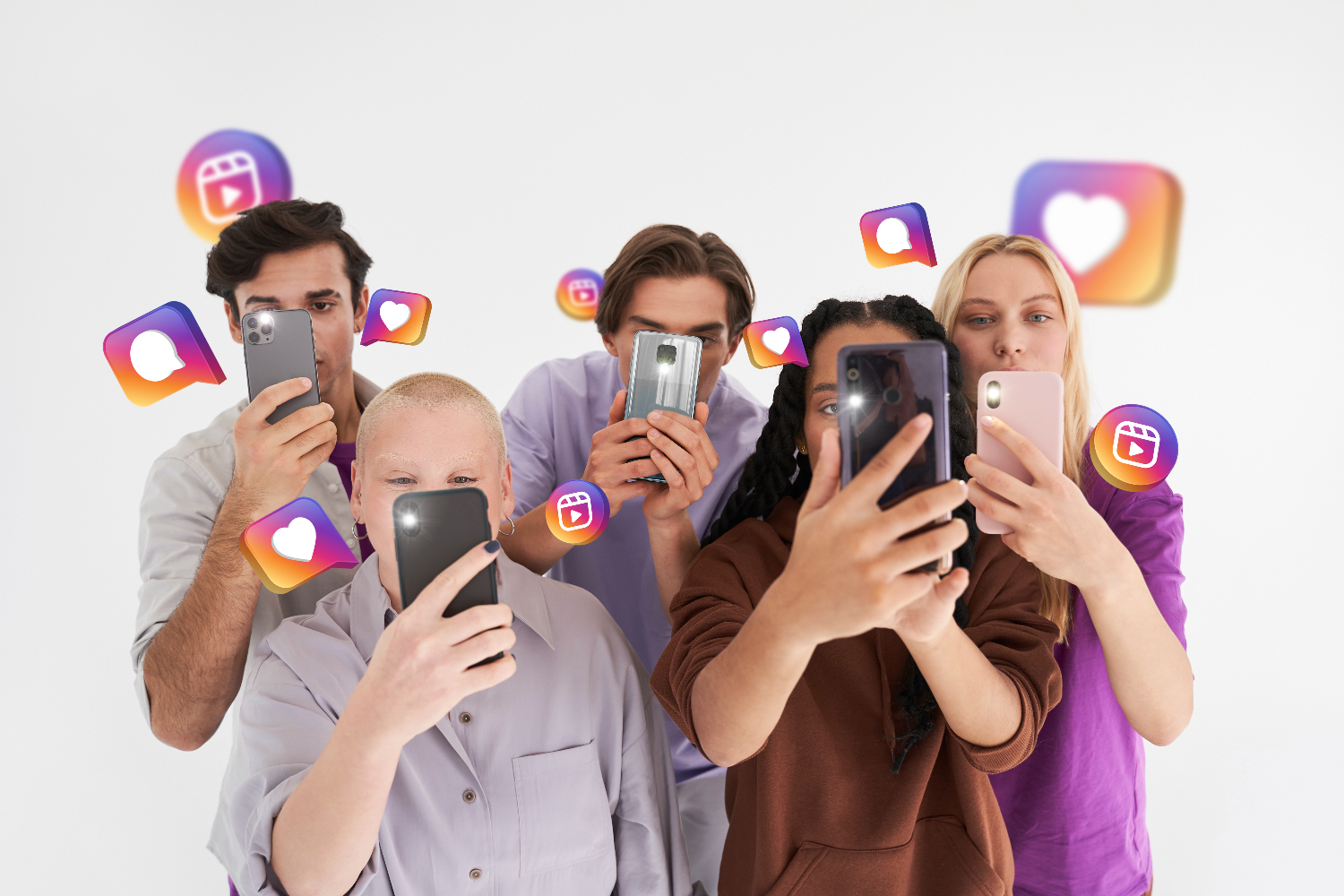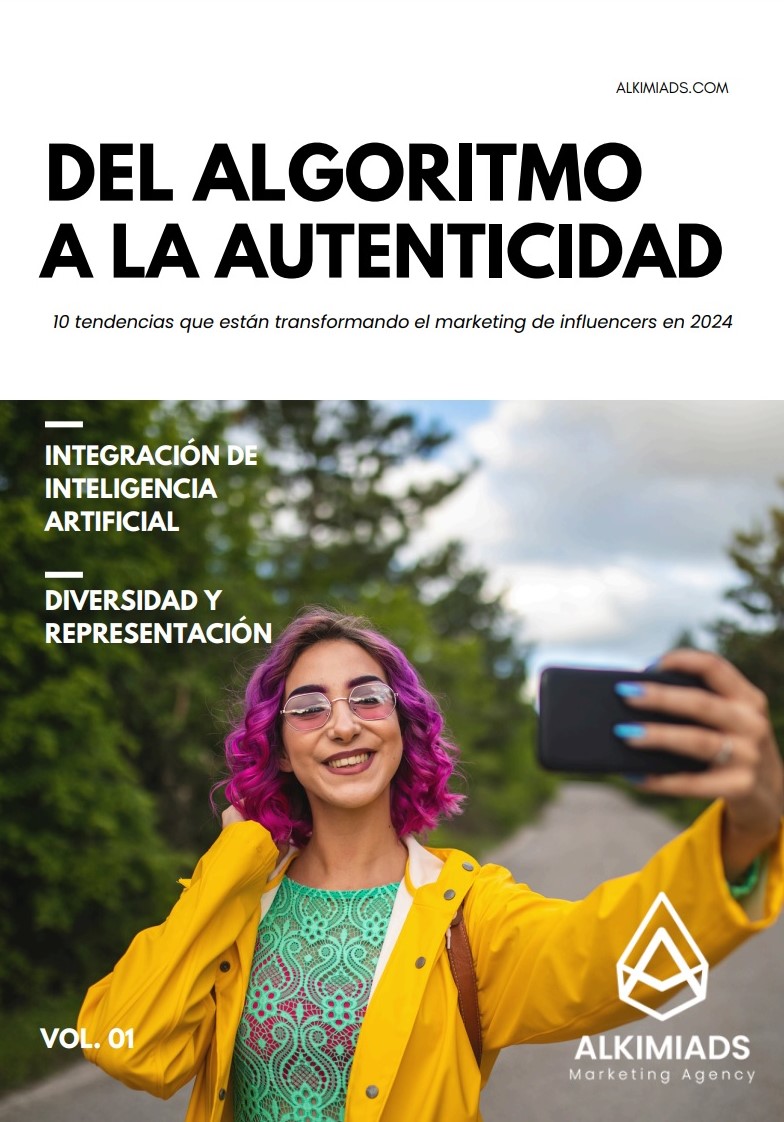Uncover the essential strategies for influencer marketing in 2025. Learn how to forge impactful influencer partnerships that drive brand success!
As we look towards 2025, influencer marketing is set to transform significantly. The rise of social media platforms and changing consumer behaviors are reshaping how brands collaborate with influencers. This article explores the evolution of influencer marketing, highlighting key strategies that will define successful campaigns in the coming years. By understanding historical contexts, current trends, and future predictions, brands can create influencer marketing strategies that resonate with their target audience.
The Evolution of Influencer Marketing
Influencer marketing has come a long way since its inception. Historically, brands relied on celebrities to build trust and awareness through traditional media. However, with the emergence of social media platforms, a diverse range of influencers has emerged, including micro-influencers who foster deeper connections with niche audiences. These changes have allowed brands to leverage authentic partnerships, focusing on building brand loyalty and trust through relatable influencer content that aligns with their brand’s values.
Historical Context of Influencer Marketing
The roots of influencer marketing can be traced back to the early days of advertising, where endorsements by celebrities were commonplace. Over time, this evolved into a more democratized approach, with social media influencers gaining prominence. By the 2010s, brands began to recognize the potential of collaborating with influencers across various platforms like Instagram and TikTok. This shift not only changed how brands approached marketing but also allowed for more targeted campaigns that resonate with specific demographics and foster genuine engagement.
Current Trends Influencing 2025 Strategies
As we move into the 2025, several trends are shaping influencer marketing strategies.
- Authenticity is becoming crucial, as consumers increasingly seek transparency and genuine connections with brands.
- The rise of TikTok and other video-centric platforms is changing content creation dynamics, allowing influencers to engage audiences in innovative ways.
- Brands are now focusing on metrics like engagement rates and ROI to ensure their influencer partnerships are effective. Collaborating with the right influencers who understand their audience’s preferences is essential for building brand awareness and loyalty.
Future of Influencer Marketing
The future of influencer marketing is poised for exciting developments. As technology advances, brands will have new tools to measure and optimize their marketing efforts. The emphasis will likely shift towards long-term partnerships rather than one-off campaigns, allowing for deeper brand narratives and sustained engagement.
In 2025, successful influencer marketing strategies will involve:
- Careful selection of influencers who align with the brand’s image.
- Fostering relationships that resonate with their target audience.
- Investing in these collaborations to maximize impact and build lasting relationships with consumers.
Types of Influencers and Their Impact
In the multifaceted landscape of influencer marketing, understanding the various types of influencers is crucial for crafting successful campaigns in 2025. Influencers can be broadly categorized into micro-influencers and macro-influencers, each carrying distinct advantages and unique impacts on brand partnerships.
- Micro-influencers typically have a smaller yet highly engaged following, enabling them to foster authentic connections and build trust within their niche demographics.
- Macro-influencers, on the other hand, boast a larger audience and significant reach, which can amplify brand awareness rapidly.
The choice of influencer type can significantly affect the engagement rate of an influencer marketing campaign, making it essential for brands to align their strategy with the right influencer to resonate with their target audience.
Micro-Influencers vs. Macro-Influencers
The debate between micro-influencers and macro-influencers is central to influencer marketing strategies.
- Micro-influencers are often seen as brand ambassadors within their specific niches. They can generate high levels of engagement and loyalty among their followers. Their content tends to feel more relatable and genuine, enhancing the authenticity of the brand partnership.
- Macro-influencers can deliver impressive reach and visibility across various platforms like Instagram and TikTok, making them ideal for campaigns aimed at building brand awareness on a larger scale.
Ultimately, the effectiveness of either influencer type hinges on the brand’s objectives—whether it’s fostering deep connections or achieving widespread exposure in the digital marketing arena of 2025.
Choosing the Right Influencer for Your Campaign
Selecting the right influencer for your campaign is a pivotal aspect of influencer marketing in 2025. Brands must assess how well an influencer’s values align with their own, ensuring that the partnership feels authentic to their audience.
- Key Metrics for Selection: Metrics like engagement rates and ROI should guide decision-making, helping brands understand which influencers can truly resonate with their target demographics.
A successful influencer marketing strategy involves thorough research and a clear understanding of the influencer’s audience and content style. By investing in the right influencer partnerships, brands can not only boost their marketing efforts but also foster long-term relationships that enhance brand loyalty and trust among consumers.
Types of Social Media Influencers and Their Roles
Social media influencers come in various forms, each playing a unique role within the influencer marketing ecosystem. From lifestyle bloggers to industry experts and content creators, their influence can be harnessed to promote products or services effectively.
- Engaging Content Creation: These influencers utilize their platforms to create engaging and relatable content that resonates with their followers, driving conversations and engagement around the brand.
- Thought Leadership: Influencers can serve as thought leaders, inspiring their audiences and fostering loyalty through authentic storytelling.
As brands navigate the evolving landscape of influencer marketing in 2025, understanding these diverse influencer types and their roles will be essential for creating impactful marketing strategies that align with the brand’s vision and goals.
Building Successful Influencer Marketing Campaigns
Creating an Effective Influencer Marketing Strategy
Crafting an effective influencer marketing strategy is crucial for brands aiming to thrive in 2025. A successful approach begins with aligning campaign objectives with the brand’s vision and values.
- Research Phase: Brands should conduct thorough research to identify the right type of influencer—whether micro-influencers or macro-influencers—who can build trust and foster loyalty among their followers.
- Utilizing Metrics: Metrics like engagement rates and ROI should also play a significant role in shaping the strategy, allowing brands to leverage insights for optimizing their influencer marketing efforts across social media platforms.
Collaborating with Influencers for Brand Awareness
Collaboration with influencers is a powerful tactic for enhancing brand awareness in the digital marketing landscape of 2025. By partnering with influencers who have established credibility and a loyal following, brands can effectively reach and engage with niche demographics.
- Authentic Content Creation: These collaborations should focus on creating authentic influencer content that reflects the brand’s values and speaks to the target audience.
Utilizing platforms like TikTok and Instagram allows brands to showcase their products or services creatively and compellingly. Successful influencer marketing campaigns hinge on the ability to build trust and foster genuine connections, ultimately leading to increased brand loyalty and visibility in a crowded marketplace.
Measuring ROI in Influencer Marketing Campaigns
Measuring ROI in influencer marketing campaigns is essential for understanding the effectiveness of partnerships and strategies.
- Key Metrics Implementation: Brands must implement metrics like engagement rates, conversion rates, and overall reach to assess the impact of their influencer collaborations. This data-driven approach enables marketers to refine their campaigns.
By tracking these metrics, brands can identify which influencers resonate best with their target demographics and which types of influencer content drive the most engagement. This continuous evaluation will allow brands to optimize their influencer marketing strategies, ensuring that they remain relevant and effective in the evolving landscape of 2025.
Authenticity and Trust in Influencer Partnerships
The Importance of Authenticity in Marketing
In the realm of influencer marketing, authenticity is paramount for establishing effective partnerships. As consumers become increasingly discerning, they seek genuine connections with the brands they support.
- Building Trust: Authentic influencer content resonates more deeply, allowing brands to build trust and credibility. This trust fosters brand loyalty, as followers are more likely to engage with and support brands that align with their values.
Consequently, brands must prioritize collaborating with influencers who embody authenticity and can effectively communicate their brand’s message, ultimately enhancing the overall marketing strategy.
Building Trust with Your Audience
Building trust with your audience through influencer partnerships is vital for successful marketing in 2025. When influencers authentically share their experiences with a product or service:
- Familiarity: It fosters a sense of familiarity and reliability among their followers.
This trust is further cultivated by transparency in collaborations, where influencers clearly disclose their partnerships with brands. By leveraging this trust, brands can enhance awareness and encourage loyal customer bases. Effective influencer marketing strategies hinge on identifying the right influencers who can genuinely resonate with the target audience.
Long-Term Partnerships for Brand Loyalty
Investing in long-term partnerships with influencers can significantly enhance brand loyalty over time. Rather than focusing on one-off campaigns:
- Ongoing Relationships: Brands should aim to create ongoing relationships with influencers who embody their brand’s values.
These enduring collaborations enable influencers to craft richer narratives around a brand, making the content feel more authentic and relatable. As influencers continue to share their experiences:
- Deeper Connections: Their audience becomes more familiar with the brand, ultimately fostering deeper connections and encouraging repeat engagement.
This approach not only builds trust but also solidifies the brand’s presence in the market.
Utilizing Social Media Platforms for Campaign Success
Best Platforms for Influencer Marketing in 2025
As we move into the 2025, selecting the best platforms for influencer marketing is crucial for campaign success.
- Dominant Platforms: Platforms like TikTok, Instagram, and YouTube are expected to dominate due to their vast user bases and diverse content formats.
Each platform offers unique opportunities for brands to engage with their target audience through authentic influencer content. For example:
- TikTok’s Creative Storytelling: Its short-form videos allow for creative storytelling, while Instagram’s visual-centric approach is perfect for showcasing products.
By understanding the strengths of each platform, brands can tailor their influencer marketing strategies to maximize engagement and brand awareness.
Strategies for Engaging Audiences on TikTok
Engaging audiences on TikTok requires innovative strategies that leverage the platform’s unique features:
- Collaborate Creatively: Brands should collaborate with influencers who excel in creating engaging and entertaining content that resonates with TikTok’s demographic.
Utilizing trending challenges, music, and hashtags can enhance visibility and encourage audience interaction.
Additionally:
- Focus on Authenticity: Allowing influencers to share genuine experiences can further deepen engagement.
By fostering creative partnerships that prioritize engagement, brands can effectively build awareness and drive loyalty among TikTok’s active user base.
Niche Marketing and Targeting Specific Audiences
Niche marketing is essential for influencer marketing campaigns aiming to resonate with specific demographics:
- Micro-Influencer Collaboration: By collaborating with micro-influencers who have established trust within niche communities, brands can effectively reach their target audience.
These influencers often share a deeper connection with their followers, leading to higher engagement rates and more authentic interactions.
Brands can leverage these relationships to craft tailored influencer content that speaks directly to the interests and needs of their audience. This targeted approach not only enhances brand loyalty but also maximizes the effectiveness of influencer marketing strategies in 2025.
Conclusion
In summary, as we head into 2025, successful influencer marketing will rely heavily on authenticity, strategic partnerships, data-driven decisions, and innovative engagement strategies. Understanding the evolution of this field helps brands craft campaigns that resonate deeply with consumers while building lasting relationships through meaningful collaborations. By selecting the right influencers, measuring ROI effectively, and focusing on long-term partnerships, brands can navigate this dynamic landscape successfully. As new trends emerge, those who adapt swiftly will thrive in this ever-evolving world of influencer marketing.






















